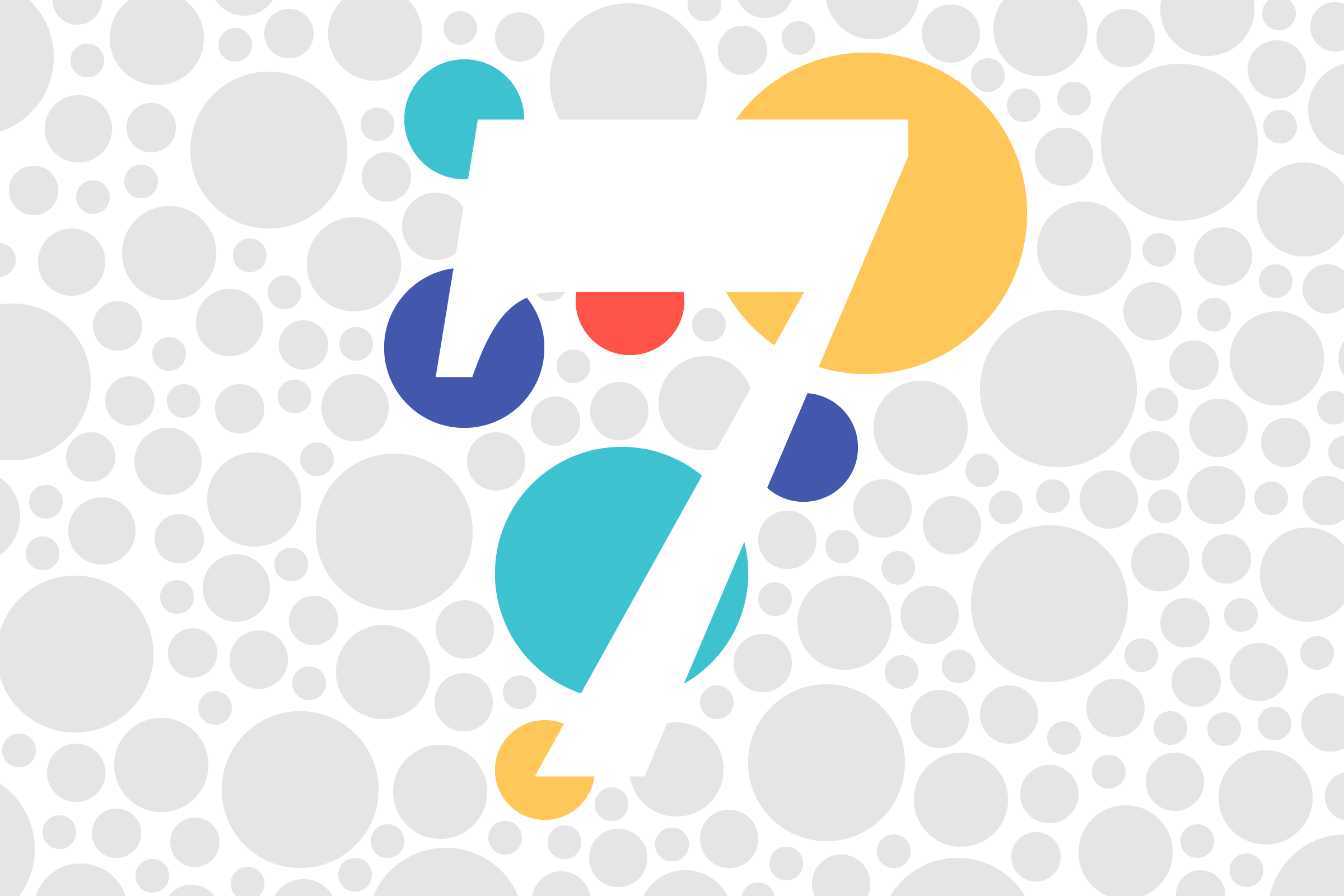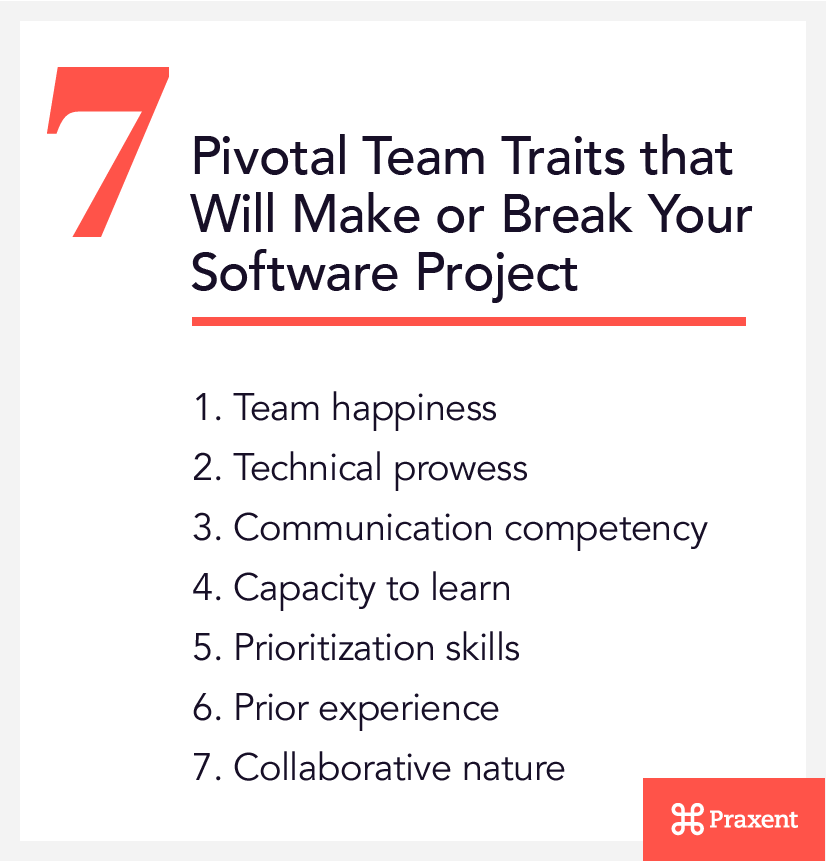
8 min read
7 Underestimated Traits of Successful Product Teams
7 Underestimated Traits of Successful Product Teams
Think of a product development company as your strategic partner in your epic quest to take your software from ideation to actual product. As a business looking for the right product development company to design and build your product idea, know that good relationships are key to successful product teams.
Don’t take soft skills for granted during your search. Factors that seem insignificant on the surface may end up costing you a lot of money or time down the road. In a process this important to reaching your goals, you have to see the broader picture.
As we examine the seven factors that define successful product teams, note that it’s not just about a developer’s skill to write solid code. Intangible traits are just as important, if not more.

1. Team Happiness | Successful Product Teams
Building user-friendly software that many people will want to use because it solves a huge problem all comes down to one thing at the end of the day: the people who make it. Whether it’s the developer who writes lines of code or the designer who thinks about information hierarchy, people are at the crux of successful product teams.
Things will be better for your working relationship if the people at your development firm are happy and have a great attitude. To wit, consider this study from PeerJ titled, “Happy software developers solve problems better: psychological measurements in empirical software engineering.”
It concludes that those developers who have a good, emotional state can solve analytical problems much better. Those are the folks you want working on your software project!
What should you do?
Before choosing a product design or development partner, take the time to ask them and see for yourself how they treat their team members—and if they’re really happy to show up to work each day. Ask them questions about team morale and how (and if at all) their employees are recognized or rewarded for a job well done. It’ll make a huge difference in dealing with any problems that pop up during the development process.
Don’t let your software project fail.
>> Check out our e-book Why Software Projects Fail for 6 proven ways to proactively ensure the success of your project.
2. Technical Prowess | Successful Product Teams
Hard technical skills must be present on your product development team. Designers and developers need to know how to execute any solution. The last thing you want is for the best product design to be out of reach because your team doesn’t know how to build it.
Here are some of the technologies your team of developers needs to be comfortable with:
Front End
- ReactJS / Redux
- AngularJS
- NodeJS
- Mongo
Back End
- Microsoft .NET
- Microsoft SQL Server
- Python
- Java
Mobile
- iOS
- Android
- React Native
- Hybrid apps
CMS
- Drupal
- django
- WordPress
- SiteCore
There’s no substitute for this technical know-how and experience. Its absence would cause problems almost immediately.
3. Communication Competency | Successful Product Teams
Good communication is easy to take for granted, but it’s a critical component of agile development, where continuous feedback and iteration are necessary to build the best product possible. If your developers aren’t encouraged to openly communicate when problems pop up (and they will show up!) during development, then the final result will likely be miles away from what you’re expecting.
Hammering this home is this dreadful statistic that you should be aware of: “More Than Half of All Project Budget Risk Is Due to Ineffective Communications”. According to this study by the Project Management Institute, a lack of a properly defined communication structure equals throwing millions of dollars down the drain.
So make sure the custom software development firm you choose has a well-defined communication plan in place during all stages of a software project. This is the difference between having a good relationship with your developers and one that’s rooted in frustration, missed deadlines, and miscommunication.
4. Capacity to Learn | Successful Product Teams
Being a software developer means a never ending process of learning. Even developers who have had many years of experience in the field still have much to learn. That’s why being great problem solvers and displaying a hunger for self-directed learning are vital qualities.
People on your development team should be intellectually curious and resourceful enough to overcome circumstances when they don’t know the answer—either by finding the right people to talk to or adapting to a new technology on their own. This will have a tremendously positive effect on your project’s schedule.
5. Prioritization Skills | Successful Product Teams
Being able to prioritize tasks when working on a software project is key to meeting deadlines and staying faithful to deliverables. Because being a developer involves so much creativity and intelligence, it’s tempting for some developers to lose focus on what’s really important on a project and get carried away trying to perfect every feature to its fullest potential. This leads to a broadening scope of the project, which is problematic.
If you’re working with a developer whose team has so many ideas during a project—but can’t only reel in the best of them and prioritize those—it’s going to lead to a relationship where you’re always having to micromanage them to ensure they stay on task. That’s an extra burden you don’t need.
Instead, when evaluating your developer, make sure that their team uses the best project management tools to ensure that they don’t broaden the scope of the projects they’re working on. Also, find out about the last time one of their developers missed a deadline, how that impacted the client and what the company learned from that mistake.
6. Prior Experience | Successful Product Teams
A company’s portfolio will provide you insight on how many projects they’ve worked on, whether they’ve worked with any big names, and their comfort level with various kinds of technologies.
Past experience can mean the difference between a developer that’s only comfortable with building an app and one that’s equally proficient at building it and then marketing it and getting it onto the App Store or Google Play. It can mean the difference between a developer that’s produced many happy clients and one that’s left a trail of disappointed clients in its wake.
If you find a developer with a well-rounded portfolio, it’s a good sign for your prospective relationship, but one with a thin portfolio should at least give you pause.
7. Collaborative Nature | Successful Product Teams
How are the product development company’s internal teamwork skills? How well developers and designers work together will have a huge impact on your relationship with the team. Perhaps the ultimate soft skill, teamwork is sadly underrated, but it’s a vital quality that developers and designers need to do a great job.
Research confirms that an effective team’s performance exceeds individual performance.
While it’s easier to directly measure hard skills like coding ability, a lack of teamwork will adversely impact the progress of your product. Imagine if one developer didn’t ask his co-worker for help because she wanted all the credit for herself, resulting in a past-due, over-budget project.
Again, this goes back to your interviewing process when you’re selecting which firm to go with. Ask them about how their team works on projects to see if they’re a well-oiled unit or one that’s beset with internal issues.
Soft Skills Are No Small Thing
There are really no small things in development because everything is critical to making your project a success. What’s truly amazing is how few see this. However, with so much on the line—your investment, your vision, and, eventually, your sanity—seemingly insignificant factors become extremely significant as soon as your product development team faces inevitable challenges on a project.



Leave a Reply